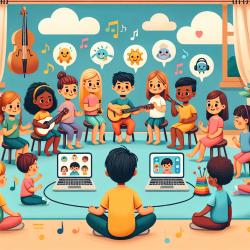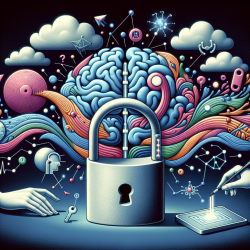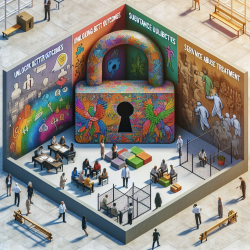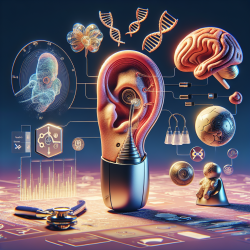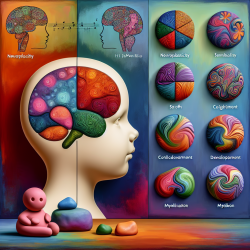As a Special Education Director, I am always on the lookout for innovative ways to enhance the educational and therapeutic experiences of our students. One promising area that has captured my attention is the use of music therapy in pediatric healthcare. A recent systematic review titled The Effectiveness of Music in Pediatric Healthcare: A Systematic Review of Randomized Controlled Trials offers compelling evidence that music can be a powerful tool for improving various health-related outcomes in children.
The study, conducted by Treurnicht Naylor et al., examined 17 randomized controlled trials (RCTs) involving children aged 1 to 18 years. The findings suggest that music therapy can significantly impact cognitive functioning, social skills, coping mechanisms, and symptomatology in children with a variety of clinical conditions. Here are some key takeaways from the research:
- Cognitive Functioning: Music therapy was found to improve recall accuracy and cognitive performance in children with developmental delays and learning disabilities. For example, one study showed that children exposed to familiar music had better recall of multiplication tables compared to those using verbal rehearsal.
- Social Skills and Developmental Milestones: Music therapy, particularly improvisational sessions, enhanced nonverbal communication skills in children with autism. These sessions often involve active participation, such as playing instruments or creating music, which helps in developing social interaction skills.
- Coping and Affect: Music therapy has shown to be effective in reducing externalizing behaviors like aggression and hyperactivity in children experiencing stressful life events. It also aids in improving coping mechanisms for children undergoing medical treatments or dealing with chronic illnesses.
- Symptomatology: Music therapy can reduce the frequency and severity of symptoms in various conditions. For instance, children with migraines experienced significant reductions in headache frequency following music therapy sessions.
Given these promising outcomes, I encourage practitioners to consider incorporating music therapy into their treatment plans. Here are some practical steps to get started:
- Collaborate with Music Therapists: Partner with certified music therapists to design and implement individualized therapy sessions tailored to the specific needs of your students.
- Integrate Music into Daily Routines: Simple activities like background music during study sessions or structured music breaks can create a calming and focused environment for students.
- Engage Parents and Caregivers: Educate parents about the benefits of music therapy and encourage them to incorporate music-based activities at home to reinforce therapeutic outcomes.
- Monitor and Evaluate: Keep track of the progress and outcomes of music therapy interventions to continuously refine and improve the approach.
While the research offers limited qualitative evidence, it underscores the potential of music therapy as a valuable intervention in pediatric healthcare. As we strive to provide holistic and effective care for our students, exploring innovative therapies like music can make a significant difference in their overall well-being and development.
To read the original research paper, please follow this link: The Effectiveness of Music in Pediatric Healthcare: A Systematic Review of Randomized Controlled Trials.
